News
“When the oven is working, memory kicks in”
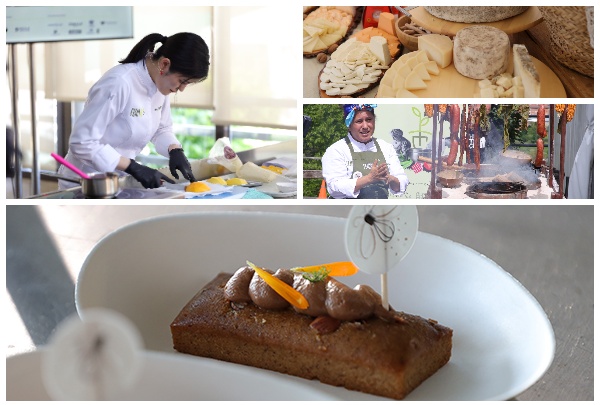
FéminAs wraps up its third congress, now established as the event for women with no limits. The next FéminAs congress will be held on the west coast of Asturias, making it the most sea-based event to date.
At the third FéminAs congress, more than 40 women from a range of countries such as Japan, Ecuador, Chile, Italy, Bolivia and Denmark, and from other parts of Spain too, demonstrated that much more promotion is still necessary to showcase the work of female chefs, producers and businesswomen working in the primary sector and the hospitality industry. They all brought their stories to the mining basins of Asturias, which have consolidated this congress as the event for women with no limits. Although there is still much territory to be conquered, more and more examples are emerging to show that nothing is impossible when enthusiasm, hard work and self-confidence come together. Bolivia's "cholita" mountaineers and their high-altitude cuisine, Ecuador chef Valentina Álvarez, Chilean Pilar Rodríguez and Japanese chef Natsuko Shoji, alongside their Spanish counterparts Vicky Sevilla, Diana Díaz, María Cano, Pepa Muñoz, and an extensive representation of the "guisanderas" of Asturias, proved this throughout the congress.
After three days around several enclaves, the International Congress of Gastronomy, Women and the Rural Milieu wound up in Laviana, declaring that even in the 21st century it is still necessary to work towards equal opportunities and recognition regardless of gender.
During the closing ceremony, Benjamín Lana, the head of Vocento's Gastronomy division, said: "this was the congress of the new generations, with chefs and producers who have demonstrated that there is still hope". The idea was taken up by Graciela Blanco, the Principality of Asturias' Deputy Secretary of Culture and Tourism, who remarked that it was precisely in the mining basins that "we are seeing an effervescent phenomenon with new gastronomic talent". Moreover, as usual, Lana made use of the occasion to announce next year's venue, which will make FéminAs 2024 the most sea-based event to date, on the western coast of the Principality.
Female passion and tenacity calling for more visibility
In the course of their discussions during the round table on women's leadership, the four female executives working in the food sector were the first guests at the congress to call for more recognition of women's work. Laura Morcillo, gastronomy consultant and founder of the multidisciplinary gastronomy/tourism school MOM Culinary Institute; Victoria Ordoñez, owner of Bodega Victoria Ordóñez & Hijos (Málaga); Esther Cueli, managing director of Asturias company Aguas Fuensanta (Nava, Asturias), and the president of the Federation of Associations of Rural Women (FADEMUR) and vice-president of the ACODEA Foundation Teresa López discussed equality and the values brought into the sector by female leadership. They all agreed that a local attitude, enthusiasm and tenacity are the assets women contribute to business projects, but their unanimity did not end there, because all four also made a stand for more appreciation of women's work.
“Professional inequality is a fact. We can perceive it more, or less, but it exists, and most especially in the rural environment. The invisibility of women in the primary sector is a classic scenario", said Teresa López. This opinion was seconded by Laura Morcillo, adding that women in the job market, and more so in the agrofood market, have "a tendency to impose limitations on themselves, and also, even though things are changing it's true that there’s a silent bias in selection processes. It's taken for granted that men aspire to executive posts, and that they're capable of undertaking all the functions; women are still obliged to prove it”. In this regard, Victoria Ordóñez pointed out that, although "40% of the wines we drink in Spain are made by female enologists, we have less visibility because we sell ourselves short, because women don't work in the wine sector with their ego - they work on the basis of their vision or concept of a project". In addition to these obstacles to the development of a professional career, Cueli added "the difficulty of retaining talent in rural environments".
Although she lives thousands of kilometres away, Natsuko Shoji empathised with the dilemma of a greater female presence in the gastronomy world. The chef of Été (Tokyo), recently voted Asia's Best Female Chef 2022 in The 50 Best Restaurants, admitted that “being female, young and penniless was a triple challenge that made it difficult for me to open the restaurant". Despite this, she called on her determination and creativity to open a cake shop - "it was what I could afford" - and continue with her dream afterwards. From her cake business - which she still runs - Shoji was able to move on to a gastronomy restaurant, although this is still a small setup with a single table for only six diners. “This business model is easier to set up and manage. That is how I survived. This is the way forward for young female chefs to set up a business", reasoned Natsuko, adding that in Japan the number of female chefs "is very small, and the number of chef proprietors is even lower. It's something that stands out, because at catering schools gender parity is the norm, but then very few of us decide to continue our professional career".
But this is not the only battle that is being waged by this young chef. Support for Japanese producers and artisans and promotion of their experience and produce are additional facets of her work. “I consider it my mission to elevate the enthusiasm of artisan Japanese producers for their food through my recipes", said Shoji proudly as she showcooked her famous mango tart.
Despite the difficulties, FéminAs has also shown that the role of women is essential in areas such as, for example, the canning industry, which has been substantially rekindled by a more active female role in the rural environment, creating new ways of doing things and selling a food technique that is as old as humanity itself.
Marisa Rodríguez, one of the five female cooperativists at Conservas Del Monte al Tabuyo (Luyego, León); Natalia Del Águila, founder and coordinator of Las Delicias Del Palacio Del Deán (Villamiel, Cáceres); Silvia Salgado, founder and manager of the artisan preserves company Angelachu (Santoña, Cantabria), Ana Labad, manager and owner of Anchoas Hazas (Lastres, Asturias) and the founder of AsturSabor Judith Naves made a stand for their projects as population catalysts and promoters of the rural milieu. Ana Labad summed it up for all of them, declaring that "entrepreneurs in a rural environment must think big, and set up top-quality businesses that can create direct and indirect jobs, for people who want to stay, but have no desire for enterprise. When we decided to open our canning business, we took on women who had worked in this before, but then they retired, and we need young people to stay in the village. To do this, I agree that we need training plans, like some of the plans that are starting up now in Asturias, because paid training takes quite a long time to become profitable”.
Links between gastronomic cultures
Ecuador and Asturias were twinned on the last day of FéminAs. This was brought about by Valentina Álvarez, chef at the Iche school-restaurant (San Vicente, Ecuador), who noted many coincidences between the different culinary traditions, "each with their own peculiarities, and that is what enriches us", and offered the "guisanderas" of Asturias a Manabí oven, "the hub transmitting Manabí's culture and identity". This oven, Valentina told congress-goers, "is not just for cooking – it’s a link to our ancestors, cultural heritage, and a transmitter of knowledge".
The Manabí oven has "16 techniques for cooking and preserving food: there's a section for roasting and frying ... but you can also smoke food - cold, lukewarm or hot - and we can also cook food buried in the embers, over the embers in what we call ‘en arrimado’ (on one side)”. It has a special space in each home, and "the star of the show in this space is the woman. She is the one who brings in the knowledge, she tames the heat, and establishes a symbiotic relationship with her oven. Each woman has HER oven and she knows it, understands how it works, and then she passes on this knowledge", explained Valentina. “When the oven is working, memory kicks in", said the ecuadorian, which was also a summary of the very essence of FéminAs, the desire to preserve memory, but not a memory that is put away or stored - a memory that is kept alive in the kitchen.
And from tradition to new needs and techniques. This was illustrated at the beginning of the congress by Argentinian pastrymaker Lucila Canero, now living in Castelldefels (Barcelona), who created a cake shop "for people who can't find anything in the cake shop". Operating a 100% vegetable gluten-free range, available only at an online shop, Lucila Canero makes products for "people who don't eat dessert because they don't like sweet things, or for people with allergies or food intolerances".


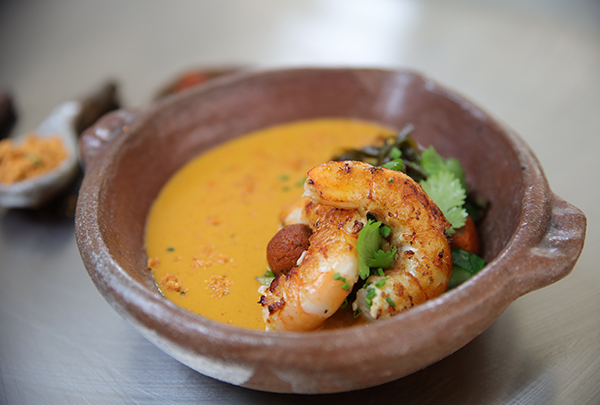
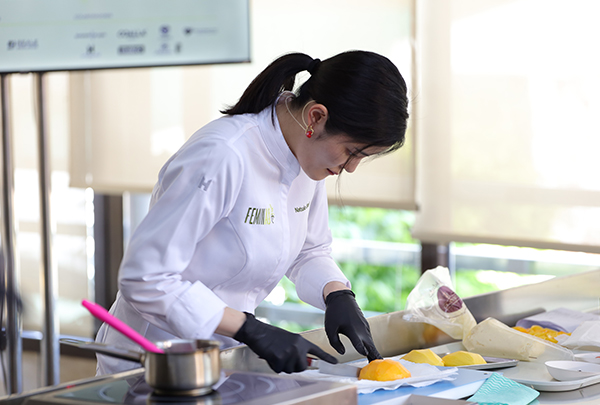
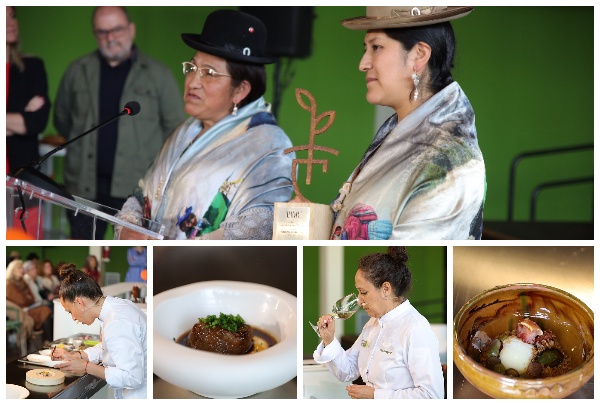
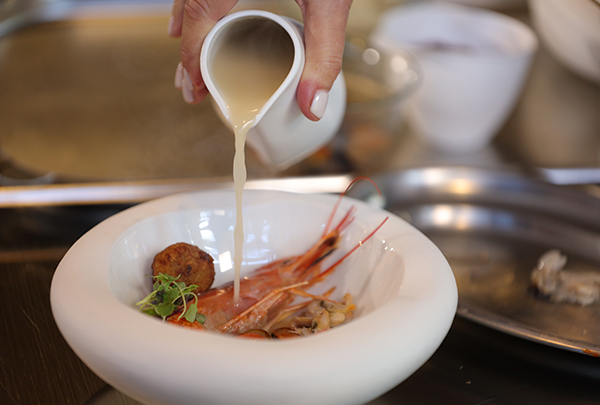
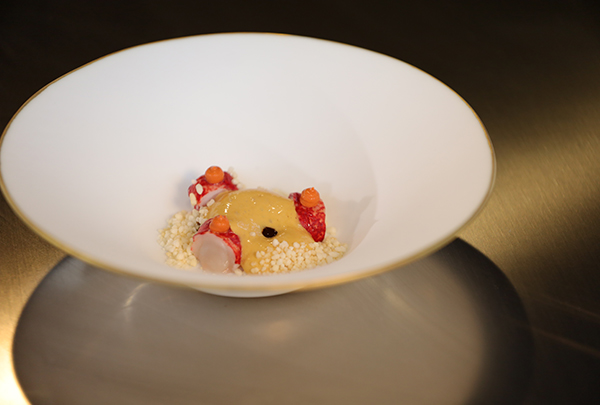
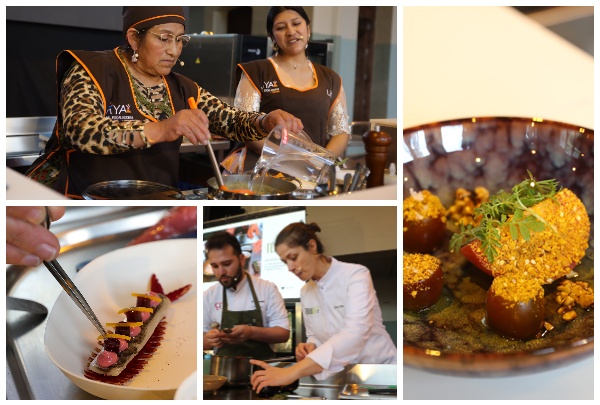
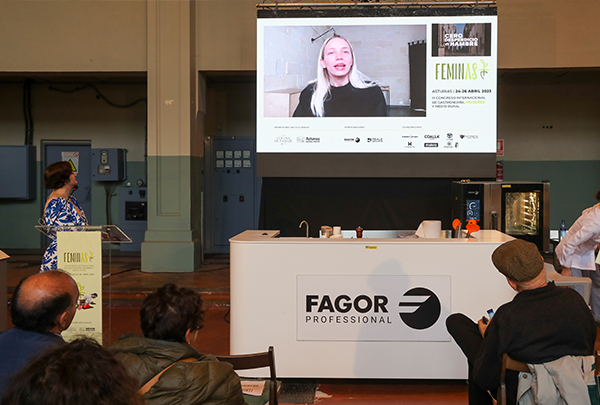
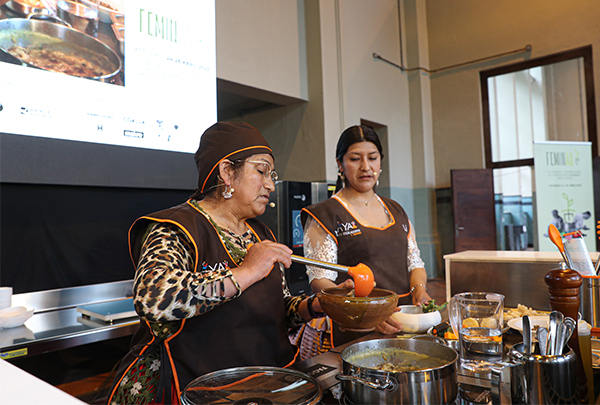
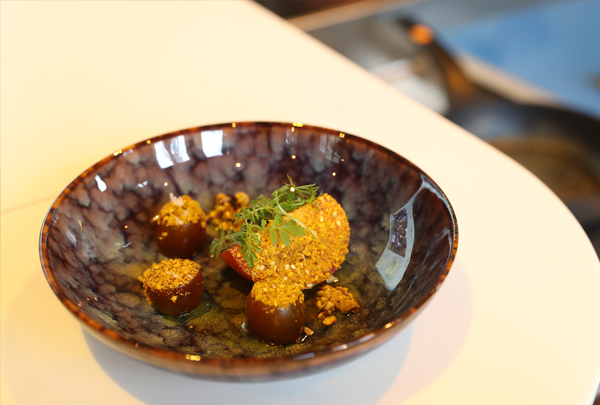
.jpg)










